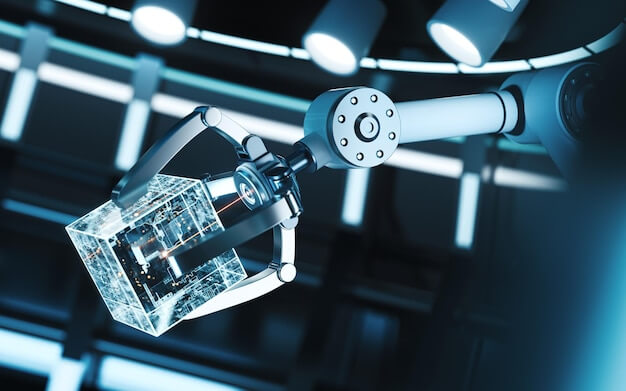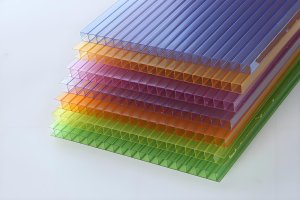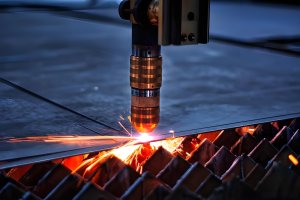Titanium Parts CNC Machining in Medical Device Manufacturing
As a cornerstone of medical manufacturing, the combination of Titanium parts and Computer Numerical Control (CNC) machining bring immense value to this critical industry. For those unfamiliar with these terms, titanium is an incredibly strong but lightweight metal that is highly resistant to corrosion, making it ideal for creating long-lasting, durable components. Meanwhile, CNC machining is an automated process wherein pre-programmed computer software dictates the movement and operation of machinery, enabling precise and efficient production. When these two are employed together, they revolutionize the creation of diverse medical devices – ranging from orthopedic implants to surgical equipment. This marriage between titanium and CNC machining has allowed for advancements such as the consistent production of highly specialized yet complex parts that meet stringent medical standards and patient-specific needs.
Understanding Titanium Parts
Titanium, a highly valued metal in medical device manufacturing, boasts of properties making it suitable for this industry’s stringent demands. The unique characteristics of titanium include its strength-to-weight ratio that surpasses other metals, superior corrosion resistance, and impressive biological compatibility, which means the human body will not reject it easily.
Integrating titanium parts into the manufacturing process confers myriad advantages. For instance, consider something as simple and ubiquitous as a hip replacement procedure. Here, implants made from titanium are common because they do not induce an adverse reaction once implanted, significantly improving the patient’s comfort levels and post-operative recovery speed.
- Strength-to-weight ratio: Titanium possesses high tensile strength while being relatively lightweight, contributing to less strain on patients
- Corrosion-resistance: This property ensures longevity of titanium-made devices, reducing the need for replacement surgeries
- Biocompatibility: Unlike other materials leading to rejection or infection, titanium is well-tolerated by the human body, lowering potential complications arising after implantation
In essence, advancements in CNC machining of titanium parts have propelled significant strides forward in the medical device manufacturing landscape – enhancing product durability, patient safety, and overall efficacy of treatment outcomes.
The Role of CNC Machining in Titanium Parts Production
CNC machining, or Computer Numerical Control machining, is a modern manufacturing process that uses pre-programmed computer software to dictate the movements of machinery. This simplified and streamlined approach eliminates the risk of human error, ensuring precision in creating complex three-dimensional cuts.
In relation to titanium parts production, CNC machining plays an integral role due to titanium’s high strength-to-weight ratio while maintaining its light weight—attributes savored in medical device manufacturing. CNC machines perform precise cuts on this robust metal without compromising its integrity or quality, ultimately delivering custom-designed titanium components with superior finishing. The entire operation consists of several steps:
- Programming: Preparation of detailed instructions for the CNC machine using CAD (Computer Aided Design) models.
- Setting Up: Inputting the specified design into the CNC machine and setting up the workpiece positioning.
- Machining: Kickstarting the automated process where the CNC machine interprets the 3D model data and starts cutting the titanium piece accordingly.
- Inspecting & Finishing: Post-machining checks are made to verify accuracy, and any additional finishing processes are completed if necessary.
This close link between titanium parts and CNC machining has allowed for significant advancements in the field of medical device manufacturing, including intricate biomedical implants and surgical instruments.
Evolution of Medical Device Manufacturing
The history and development of medical device manufacturing have greatly evolved over the years, with traditional methods paving way for modern automated processes. This evolution was possible due to advancements in technology such as Computer Numerical Control (CNC) machines that allow precision machining of Titanium parts. Unlike older methods which were labour-intensive and error-prone, CNC machining provides high precision results with minimal human intervention.
- Impact on Quality: The usage of CNC machinery in the production of Titanium components has resulted in improved product quality. By allowing precise control of cutting parameters, these technologies minimise errors resulting this leads to fewer defects and wastage. Furthermore, since titanium is known for its strength and biocompatibility; it’s an excellent choice for robust, long-lasting medical devices.
- Impact on Efficiency: Automation via CNC machines bring about significant improvements in efficiency and productivity. They operate continuously for 24 hours a day with occasional maintenance breaks thereby reducing turnaround times. As per recent statistics from Industry Week, factory output increased by up to 30% following implementation of CNC solutions, underscoring their transformative role in modernization of manufacturing processes.
In conclusion, technological innovations like CNC machining are not just reshaping the landscape of medical device manufacturing but also improving the quality of products while enhancing operational efficiency.
The Role of CNC Machining in Enhancing Titanium Medical Devices Production
Titanium is widely used in the production of medical devices due to its exceptional properties such as biocompatibility, corrosion resistance, and strength-to-weight ratio. CNC machining plays a crucial role in enhancing the production of titanium medical devices by enabling the precise and efficient manufacturing of complex and customized components required for medical applications.
Recent Developments and Future Scope in CNC Machining Titanium Parts
The innovation-driven field of CNC machining for titanium parts has experienced significant advancements recently. An notable breakthrough is the introduction of High-Speed Machining (HSM). HSM boosts cutting speeds by up to 5 times, reducing production time whilst maintaining precision. The adoption of Multi-tasking Machines(MTM) also marked a remarkable shift, integrating multiple functions such as milling and turning into one unit. This optimizes productivity while reducing setup time.
- HSM: Enhances cutting speed significantly which reduces manufacturing time while ensuring accuracy.
- MTM: Combines various capabilities like drilling, milling in one entity which enhances productivity and lowers setup time.
Looking ahead, there’s promising potential growth within this sphere. We anticipate an increase in robot-automated solutions facilitating greater efficiency and more complex part designs. Incorporating Artificial Intelligence(AI) in process monitoring and optimization could present new opportunities too. The exploration of micro-machining technology to manufacture tiny yet detailed titanium parts presents another probable direction. Thus, with rapidly developing innovations, the sector awaits considerable expansion.
- Robot-Automated Solutions: Expected to boost efficiency and support intricate design creation.
- AI Integration: Holds potential in improving process monitoring and efficiency.
- Micro-Machining Technology Exploration: Can enable production of minuscule but detailed titanium components.
Conclusion
In conclusion, the advancements and applications of Titanium Parts CNC Machining in medical device manufacturing have transformed this sector. It has facilitated the precise fabrication of complex geometries unachievable with traditional methods. To enumarate, these include knee replacements and dental implants amongst others. Understanding these developments is crucial as it encourages sustained innovation, ensuring patient safety while improving treatment outcomes.
- The utility of lightweight yet robust titanium alloy promotes not only functionality but also longevity of medical devices,
- CNC machining techniques offering higher precision and efficiency compared to conventional casting or forging methodologies.
Overall, recognizing the progression and usage of Titanium parts CNC machining equips manufacturers to deliver superior quality products that enhance healthcare practices globally.
Other Articles You Might Enjoy
- Precision CNC Machining for High-Performance Industrial Machinery
Precision CNC Machining for High-Performance Industrial Machinery The process of Precision CNC (Computer Numerical Control) machining is at the core of manufacturing high-performance industrial machinery. This technique leverages a computer's…
- CNC Machining for Medical Applications: Compliance and Material Selection?
Introduction to CNC Machining in Medical Applications CNC or Computer Numerical Control machining is a manufacturing process wherein pre-programmed computer software dictates the movement of factory tools and machinery. This…
- The Benefits Of CNC Machining For Medical Products And Parts
CNC machining is one of the most flexible of all traditional manufacturing processes. It’s versatile in terms of the parts that can be manufactured, as well as the materials they…
- Material Versatility in CNC Machining: From Titanium to Thermoplastics
Introduction to CNC Machining CNC machining stands as a cornerstone in the manufacturing sector, enabling the precise creation of parts and components. This process utilizes computer numerical control (CNC) to…
- Custom CNC Machining Services for Titanium Parts: Enhancing Aerospace and Medical Industries?
Custom CNC Machining in the Aerospace and Medical Sectors In response to the steady growth of both the aerospace and medical industries, increasingly sophisticated manufacturing techniques have become a necessity.…
- Leveraging CNC Machining for Medical Devices: Titanium vs. Stainless Steel Materials
CNC Machining in Medical Device Manufacturing: An Introduction Computer Numerical Control (CNC) machining is a critical practice within the field of medical device manufacturing. This advanced technology allows for precision-engineering,…






